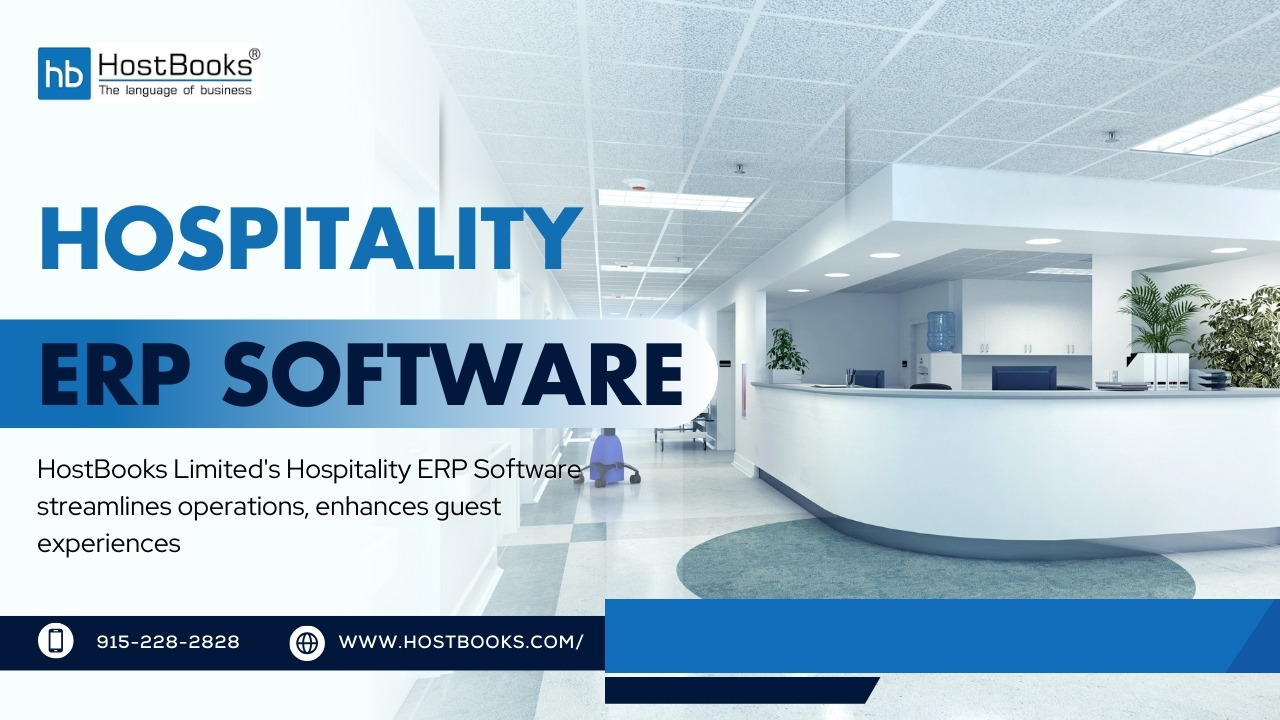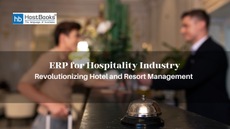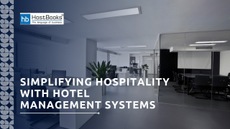The hospitality industry is known for its fast-paced, customer-focused environment, where delivering exceptional service and ensuring operational efficiency are key to success. As businesses grow, so do the complexities of managing reservations, guest preferences, inventory, staff, and finances. This is where ERP systems for the hospitality industry come into play. By integrating various functions and automating key processes, hospitality ERP software helps businesses streamline operations, reduce costs, and provide a superior guest experience. Let’s explore how ERP systems are revolutionizing the hospitality industry.
What is an ERP System for the Hospitality Industry?
An ERP (Enterprise Resource Planning) system is a centralized software solution that integrates and automates core business processes within an organization. For the hospitality industry, ERP systems combine everything from room bookings and customer data management to inventory control, financial reporting, and employee management. This integration provides a comprehensive view of business operations, enabling managers to make more informed decisions, improve service efficiency, and enhance overall productivity.
Key Benefits of Hospitality ERP Software
- Improved Operational Efficiency
- One of the primary advantages of hospitality ERP systems is their ability to streamline business operations. From managing reservations to coordinating housekeeping, an ERP system for hospitality connects various departments, ensuring that everyone works with up-to-date information. This minimizes delays, reduces errors, and improves communication between teams, leading to smoother day-to-day operations.
- Enhanced Guest Experience
- In the hospitality industry, guest satisfaction is paramount. ERP software for hospitality allows businesses to track guest preferences, booking history, and feedback, enabling personalized service. By understanding the needs of each guest, businesses can offer tailored experiences that increase guest satisfaction, drive loyalty, and boost repeat bookings.
- Effective Inventory and Resource Management
- Managing inventory in hospitality can be complex, especially with the need to track food and beverage stock, linens, toiletries, and other supplies. Hospitality ERP software provides real-time tracking of inventory levels, automates reordering processes, and helps prevent stockouts or overstocking. This ensures that businesses maintain optimal inventory levels and reduce wastage.
- Real-Time Financial Insights
- Financial management is critical in the hospitality industry. ERP systems for hospitality integrate accounting, budgeting, payroll, and invoicing functions, providing real-time financial data. This helps businesses track expenses, analyze profitability, and make data-driven decisions about pricing, promotions, and investments.
- Employee Management and Scheduling
- Managing a workforce in the hospitality industry can be challenging, especially when dealing with fluctuating demand and shift-based schedules. ERP software helps streamline employee scheduling, track working hours, manage payroll, and ensure compliance with labor laws. This reduces administrative burdens and ensures that staffing levels align with business needs.
- Compliance and Reporting
- In the hospitality industry, compliance with local regulations regarding taxes, health standards, and employee rights is essential. Hospitality ERP systems automate the generation of reports that help businesses stay compliant with regulations and avoid costly penalties. They also facilitate audit trails, ensuring accurate documentation for transparency and accountability.
How ERP Systems Transform Hotel Management
- Centralized Reservation System
- ERP for hospitality industry includes a centralized reservation system that integrates with online booking engines, third-party distributors, and in-house channels. This ensures that hotel room availability is accurate, reservations are processed efficiently, and overbooking is prevented.
- Customer Relationship Management (CRM)
- An integrated CRM within hospitality ERP software helps businesses track customer preferences, loyalty program data, and past interactions. By understanding guest needs, hotels can personalize their offerings, such as room preferences, welcome amenities, and special requests, leading to a more memorable stay.
- Food and Beverage Operations
- Hotels and resorts that offer food and beverage services benefit from hospitality ERP systems that manage menus, track food inventory, monitor supplier orders, and manage food cost analysis. By keeping inventory levels in check and managing supply chains effectively, businesses can reduce wastage and improve cost efficiency.
- Event Management
- Many hotels and resorts host events such as weddings, conferences, and banquets. ERP systems for hospitality help streamline the planning and management of these events, from booking venues and coordinating catering services to managing guest lists and billing.
Why Invest in Hospitality ERP Software?
- Scalability and Growth
- As hospitality businesses expand, whether by adding more locations, increasing staff, or offering new services, ERP systems can scale to meet the growing needs of the organization. This flexibility ensures that businesses can continue to operate efficiently, regardless of size or complexity.
- Improved Decision-Making
- With real-time data at their fingertips, managers can make more informed decisions regarding pricing, staffing, promotions, and customer service. Hospitality ERP systems help identify trends, track KPIs (key performance indicators), and forecast future demand, providing the insights needed for strategic planning.
- Competitive Advantage
- In the competitive hospitality market, providing excellent service is essential for success. By leveraging ERP software for the hospitality industry, businesses can enhance operational efficiency, improve guest experiences, and reduce costs, all of which contribute to a competitive edge in the marketplace.
- Enhanced Collaboration and Communication
- An integrated hospitality ERP system facilitates better communication between departments. Front desk staff, housekeeping, maintenance, and management can all access the same real-time information, ensuring that everyone is aligned and working toward the same goal: guest satisfaction.
Tips for Successfully Implementing ERP in Hospitality
- Understand Your Needs
- Before selecting an ERP system for hospitality, take time to assess the specific needs of your business. Identify key areas that require improvement, whether it’s reservation management, inventory control, or guest service.
- Choose the Right ERP Provider
- Look for an ERP provider that understands the unique challenges of the hospitality industry. Ensure the software is customizable and scalable to suit your specific needs and can integrate with your existing systems.
- Training and Support
- Successful implementation of hospitality ERP systems requires training staff to use the system effectively. Provide ongoing support and resources to ensure smooth adoption and maximize the benefits of the ERP system.
- Prioritize Data Security
- With sensitive customer and financial data being handled by hospitality ERP software, ensuring strong data security measures is critical. Implement encryption, secure access controls, and regular security audits to protect your business and customer information.
Conclusion
ERP systems for the hospitality industry are transforming the way businesses operate by providing a centralized platform that integrates various functions, streamlines operations, and enhances guest experiences. Whether you run a hotel, resort, restaurant, or event venue, investing in hospitality ERP software allows you to manage resources more efficiently, improve customer service, and gain valuable insights that drive growth. As the hospitality industry continues to evolve, the role of ERP systems will only become more essential for businesses looking to stay competitive and provide exceptional service in an increasingly demanding market.




